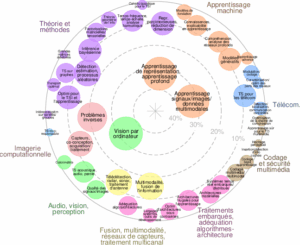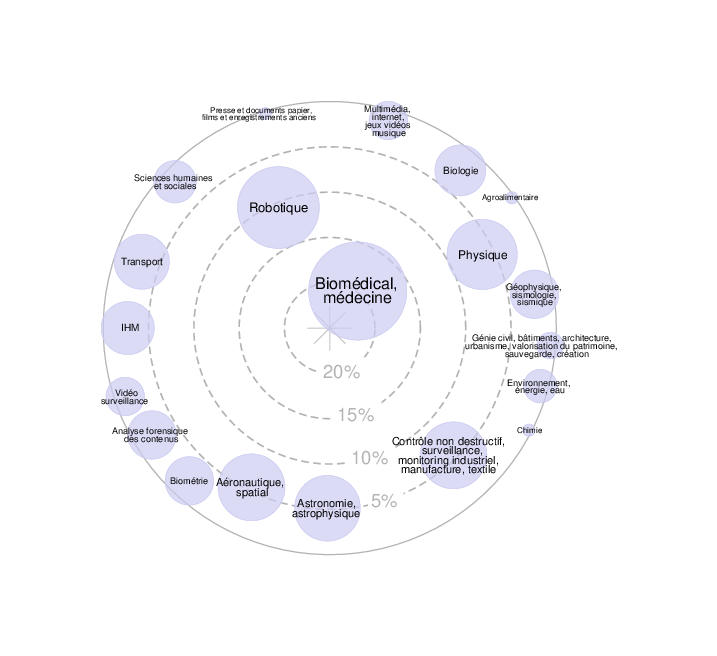Morphology-Informed Neural Networks for Spatial Resolution Enhancement in Coastal Remote Sensing
Topic: This PhD project aims to develop advanced deep learning techniques for enhancing the spatial resolution of multimodal remote sensing data (optical, thermal, topographic, bathymetric) in coastal environments. These regions are socially and ecologically sensitive and dynamically evolving, requiring high-resolution data for effective monitoring, conservation, and planning. The project focuses on designing neural network architectures that integrate prior geometric and morphological knowledge – such as shoreline contours, geological structures, vegetal / animal patterns, and human constructions – into the learning process to improve the quality and interpretability of super-resolved and fused images.
The research will address four main goals:
- Design of novel hybrid neural architectures that combine convolutional layers, morphological operators, and attention mechanisms to preserve structural and socio-ecological features in high-resolution outputs.
- Development of data fusion and super-resolution methods that integrate multi-source and multi-resolution data (e.g., Sentinel-X, Landsat-X, PlanetScope, manned and unmanned airborne system imagery) while maintaining spectral (optical, thermal) and spatial fidelity.
- Application to real-world coastal monitoring, including shoreline change detection, habitat mapping (e.g., salt marshes, seagrass beds, mangrove forests, coral reefs), and morphodynamical analysis across selected study sites (e.g., Mont-Saint-Michel, Camargue, Martinique, Moorea).
- Integration into decision-support systems for Nature-based Solutions (NbS), enabling scenario-based planning under different climate projections.
Research Strategy: The methodology will involve the development of deep learning models informed by mathematical morphology and geometric priors. These models will be trained and validated on a rich dataset combining satellite, plane, drone, and in-situ observations. The research will explore:
- Morphology-aware loss functions to preserve ecological structures.
- Multi-scale and multi-modal data fusion pipelines.
- Comparative analysis of baseline vs. enhanced-resolution datasets.
- Scenario modeling for coastal adaptation planning using high-resolution outputs.
Supervisors and collaboration:
- Gustavo (Jesus) Angulo (CMA, Mines Paris – PSL): jesus.angulo_lopez@minesparis.psl.eu
- Antoine Collin (Coastal GeoEcology Lab, EPHE – PSL): antoine.collin@ephe.psl.eu
This PhD project is co-supervised by G.J. Angulo (Mines Paris – PSL) and A. Collin (Coastal GeoEcology Lab, EPHE – PSL), bringing together complementary expertise in mathematical image and data science and coastal environmental science. Their collaboration bridges two leading French research institutions members of PSL University and fosters a truly interdisciplinary environment. Dr. Angulo contributes cutting-edge knowledge in morphological deep learning and mathematical modeling, while Dr. Collin brings extensive experience in coastal geography, biodiversity monitoring, and remote sensing. The PhD student will benefit from access to both institutions’ research infrastructures, datasets, and network of international collaborations, enabling a rich and dynamic doctoral experience. The project aligns with the vision and strategy of the Center for Applied Mathematics (CMA) Mines Paris – PSL
by leveraging Artificial Intelligence tools to address climate change challenges, with a focus on adaptation, mitigation, and biodiversity, and to deepen our understanding of the effect on ecological systems.
Application:
Candidates should send to both co-supervisors a CV, a cover letter, recommendation letters, and the grades obtained during the last two years.





